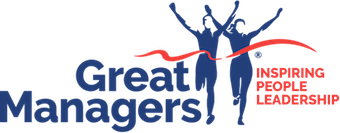Employee Development: 7 Tips That Get Results
Setting Professional Development Goals Is Just the Start
There are many reasons why you should actively engage in employee development. For one, you improve your team members’ skill sets, which makes them more valued assets. You also demonstrate that you have one eye turned towards the future of your organisation. Finally, you show your employees that you have confidence in them.

Managers use all sorts of employee development methods. Naturally, some efforts get more results than others. Here are seven tips that we believe will get you results from your employee development.
Employee Development Tip #1 – Focus on the Individual
Ideally, the people you hire will want to develop. This is especially the case for your most talented employees. They’re constantly setting professional development goals for themselves. However, they also need your help if they’re going to achieve those goals.
Subsequently, your employee training should focus on professional development. Work with your employees to figure out the skills they need to succeed in their roles. You should then use this information to develop your training programs.
For example, you could create unique development plans for each individual. Set some targets and provide the tools that the employee needs to reach their targets.
Employee Development Tip #2 – Make It the Employee’s Responsibility Too
As a manager, you must find ways to help your employees to develop. That’s a given, however, your employees  should be doing the same. They should feel motivated enough in their roles to want to grow and flourish in them.
should be doing the same. They should feel motivated enough in their roles to want to grow and flourish in them.
If your employees aren’t coming to you with ideas for skill development, you need to ask yourself why. It’s possible that your employee is happy with the status quo. If that’s the case, you need to consider whether a stagnant employee offers more than somebody who wants to grow.
However, you also have to look at your workplace culture. It’s possible that your staff don’t feel comfortable coming to you with ideas. In that situation, you need to change things by making employees aware that you’re always happy to hear about their professional development ideas.
Employee Development Tip #3 – Keep Raising the Bar
Most managers set targets for their employees. This gives the individual something to shoot for while ensuring they complete the tasks you set for them.
However, these targets mean little if you don’t adjust them. An employee will not develop if he or she just needs to do the same thing week in and week out to make you happy.
Re-evaluate each employee’s targets on a regular basis. Set new targets and raise the bar on existing goals (celebrating along the way, of course). That way, your employee feels like he or she constantly achieves something new. Furthermore, you’ll get more out of those who aren’t working to their full potential within their current targets.
Employee Development Tip #4 – Look beyond the Current Job Function
In an increasingly compartmentalised workplace, many people feel like they can’t try new things. They become completely locked into their current positions. While this can get results, it limits the person’s ability to grow.
You must look beyond an employee’s current role if you want to train them effectively. This is especially true if they have the potential to take a more prominent role within the organisation.
This is where cross-training comes into play. Offer employees the opportunity to learn about what other departments do. This gives them a more rounded view of the company and a chance to develop new relationships, which will serve them well later on in their careers.
Employee Development Tip #5 – Help Employees Link Up With Other Professionals
Some people struggle to take the initiative when it comes to networking.
They don’t get out and meet new people or join professional organisations that would offer them learning opportunities.
As a manager, you should ensure your employees meet other professionals. Involve them in meetings and introduce them to new people.
Your aim is to show the employee that they can develop outside of the organisation’s confines. They can get support and advice from others, which they can then apply to the work they do for you.
Employee Development Tip #6 – Set the Example
What do you think your employees see when they look at you? Are you the manager who just barks orders and then goes back to the office? Or are you a person who wants to develop your own skills?
If you’re the latter, you’re on the right track. People look to their managers to provide an example of how they should act in the workplace. If you’re not trying to develop professionally, your employees won’t feel like they have to either.
As we say at Great Managers, the Best Leaders, are the Best Learners.
Employee Development Tip #7 – Capability over Competence
When it comes to professional leadership development, the traditional approach is to enrol your employee into an accredited course.
These types of courses, usually run by institutes or larger vocational organisations, offer competency-based learning. This method has many shortcomings and is being challenged by a far more effective model, capability-based learning.
Whilst competency-based will ensure your employee ends up with a piece of paper “qualifying” them, they will more than likely be out of your workplace for many days attending lectures in order to achieve it.

To put it simply, adults do not learn this way. Learning requires activity and application and this is exactly what capability based learning is all about.
Capability-based learning will ensure employees have the diverse and necessary skills to be successful in their profession. Applying skills in real-time and on-the-job.
What to Do Next
With these tips, you can do all the following:
- Improve your employee development methods.
- Ensure employees stay engaged with your organisation.
- Develop the people who will take the organisation forward in the future.
- Remember that a Great Manager can DOUBLE the capability of their people.
Register for our next free webinar to learn what great managers do differently to grow profitable, sustainable businesses and high-performing teams.








